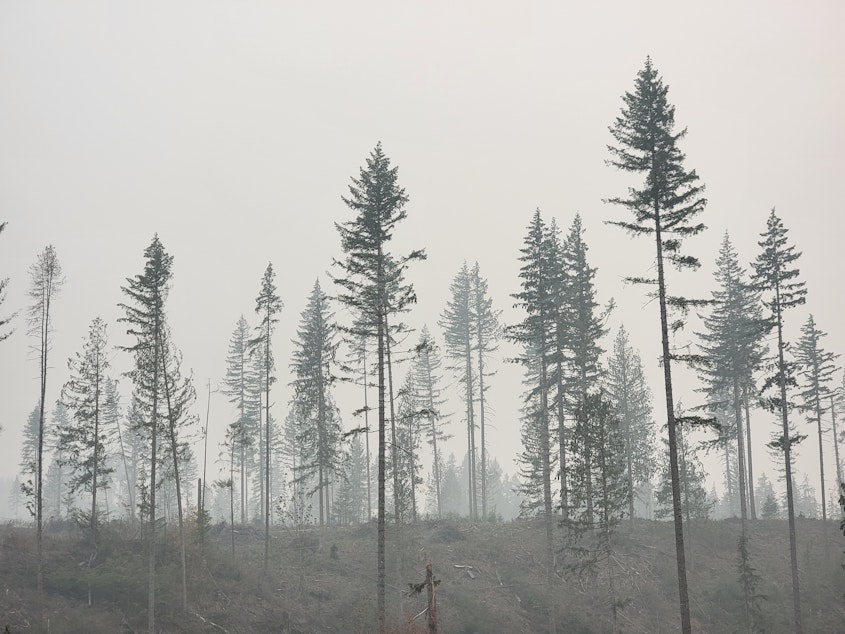Eerie, quiet and so much smoke: Darrington mayor reflects on hazardous air quality

A blanket of smoky particles and pollution continued to smother the Puget Sound region Thursday.
But if you think your neighborhood has it bad, consider Darrington, in Snohomish County – which sits at the confluence of multiple wildfires. The Air Quality Index there climbed past 450 this week.
The scale only goes to 500.
Soundside host Libby Denkmann spoke to Darrington Mayor Dan Rankin about how his town is doing.
Hope is in sight for all of us, according to weather forecasters.
But the air quality remains bad for the moment in Darrington.
Sponsored
"It's like a light fog throughout the community," Rankin said. "Some of the street lights are on and definitely have that pungent wildland fire smell about us. Visibility [is] maybe four of our really short town blocks, and then it kind of vanishes into gray."
Rankin says that, in the 61 years he's lived in Darrington, he's never seen so much smoke in his community. People are trying to cope the best they can by staying inside.
"It's a real quiet and almost eerie atmosphere throughout the community," Rankin said.
Western Washington is expected to see rainfall on Friday, which could help improve air quality in the region.
For Rankin, a walk in the rain is at the top of his list of things to do once it's safe to hang out outside.
Sponsored
"That's where you'll find me, and if you don't do stuff in the rain in Washington, you don't do stuff," Rankin said.
Dr. Jonathan Cogen, an attending physician in Seattle Childrens Hospital Division of Pulmonary and Sleep Medicine, says smoky air is especially troublesome for children.
Cogen says that more and more data shows associations between air pollution and long-term outcomes on kids' health, like respiratory issues.
What's harder to determine, Cogen says, is what qualifies as "long-term exposure" to the smoke and air pollution we're experiencing right now.
"It kind of depends on who you are as a person," Cogen said. "I think if you're outside playing as a child for 30 minutes or 60 minutes in the playground, there's probably not a super high risk of some of these long-term complications, though. It's really hard to tell since these studies are done for people who live in these conditions for weeks and months at a time."
Sponsored
You can listen to the full interview above





